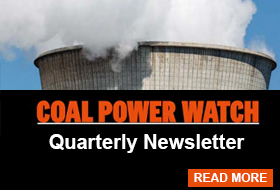Work Overview
India faces a huge energy deficit, with millions of households without power for basic lighting or cooking, and coal power is essential for the next few decades to resolve this energy crisis, to address the issue of energy access, which is just as important as the environmental problems of unclean power.
Centre for Science and Environment believes that we need to push for renewables – not because we can afford to do without coal, but because it is the urgent requirement to address the looming climate change concerns. At the same time, it is equally important is to clean up our coal power sector so that it does not destroy the environment and take human lives. This entails shutting down old and inefficient power plants, and reducing emissions from the remaining
Thermal
Recent Blogs
 Water wastage by coal power plants: India needs regulatory oversight, protocol for water audits Water wastage by coal power plants: India needs regulatory oversight, protocol for water auditsBy: Sugandha Arora Sardana |
 India’s coal power sector continues to disregard water norms: CSE report India’s coal power sector continues to disregard water norms: CSE reportBy: Sugandha Arora Sardana |
 Fly ash breach incidents on the rise amid proposal on deadline extension: CSE Fly ash breach incidents on the rise amid proposal on deadline extension: CSEBy: Sugandha Arora Sardana |
 Indian states, power plants with poor ash utilisation must act now Indian states, power plants with poor ash utilisation must act nowBy: Sugandha Arora Sardana |














